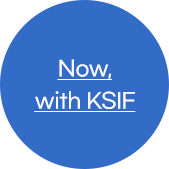
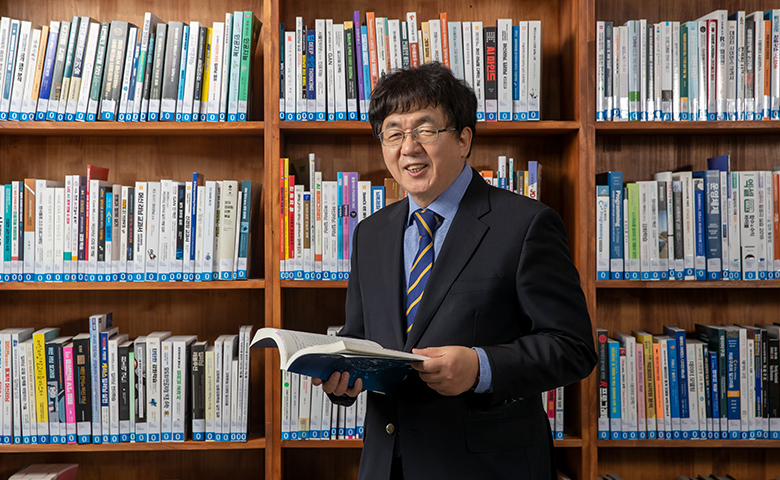
We nurture King Sejong Institute learners who contribute to the world and the region
President Jang Soon-Heung of Busan University of Foreign Studies
Busan University of Foreign Studies operates five King Sejong Institutes in Vietnam, Russia, Myanmar, and Brazil. We met President Jang Soon-Heung of Busan University of Foreign Studies, who is a leading nuclear energy expert representing Korea and an educator who promotes convergence between academic disciplines, and who is working to spread and exchange Korean language and culture overseas.
Hello, President. You have a doctorate in nuclear engineering, served as vice president of KAIST and president of Handong University, and were inaugurated as the 11th president of Busan University of Foreign Studies in October 2022. Please start by introducing yourself as an educator who is not limited to one field but encompasses the liberal arts and sciences.
Hello. My name is Jang Soon-Heung, and I am currently serving Busan University of Foreign Studies. The reason I have been working as a nuclear energy expert for a long time and also as an educator is because I believe that it is important to combine and integrate academics beyond the boundaries of liberal arts and science. I believe this can provide students with a broader perspective and foster their creativity. Through continuous innovation and development, I want to contribute to helping the school grow in line with the global era.
I am curious about your philosophy of operating Busan University of Foreign Studies. You have achieved significant achievements, such as introducing the free major system for the first time as a university in the Busan region and achieving the highest overseas employment rate in the country for 10 consecutive years. As a ‘local university’ and a ‘global university,’ what are you trying to do to create unique value for Busan University of Foreign Studies?
The most important things I consider are ‘student-centered education’ and ‘internationalization’. As a local university in Busan, we aim to cultivate talent with an international perspective to keep up with the global era while maintaining close connection with the local community. In particular, we aim to create an environment where students' creativity and individuality can be respected and demonstrated through innovative educational methods such as the free major system introduced for the first time in the Busan, Ulsan, and Gyeongsang regions this year. Additionally, by focusing on language education, we are responding to the multicultural reality of the Busan region and striving to produce talent with international capabilities. Through these efforts, our university strives to brighten the future of our students by contributing to the nurturing of creative and global talents in Korean society.
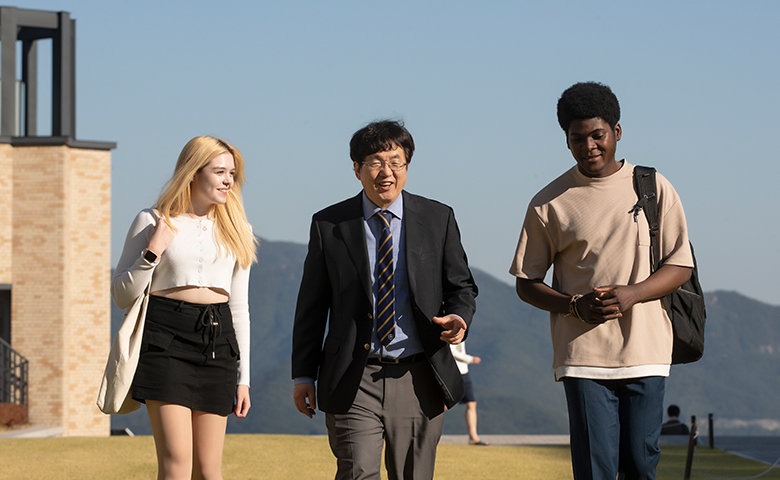
Busan University of Foreign Studies has a strength in ‘Korean language education’ as it operates a Korean language education major and a Korean language culture education center. Based on this, Busan University of Foreign Studies operates five ‘Linkage type King Sejong Institute’ learning centers with overseas universities. I am curious as to why you are interested in the project of disseminating the Korean language and culture overseas.
Korean language and culture play a very important role in helping us communicate with the international community. As the Korean language becomes more popular around the world, interest in Korean culture is also increasing, so I believe that disseminating them overseas can promote cultural exchange with the international community. Additionally, teaching Korean overseas and promoting Korean culture can increase awareness and familiarity with Korea. This will promote cultural and economic exchange and strengthen Korea's soft power. Lastly, as the number of students learning Korean overseas increases, exchange and cooperation between overseas countries and Korea will expand, making Korean companies' overseas expansion and international cooperation more seamless.
Korean language and culture are important keys to brightening the future of Korea. Busan University of Foreign Studies proudly carries out its role of delivering these keys to the world through the operation of King Sejong Institute.
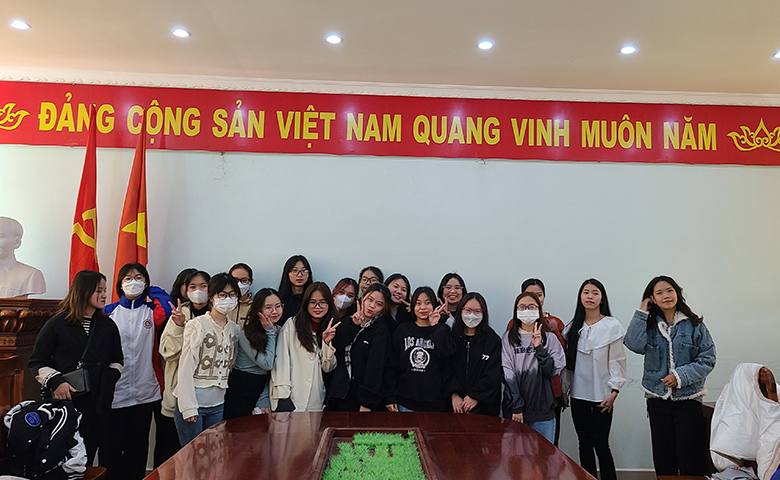 King Sejong Institute in Hai Phong, Vietnam
King Sejong Institute in Hai Phong, Vietnam
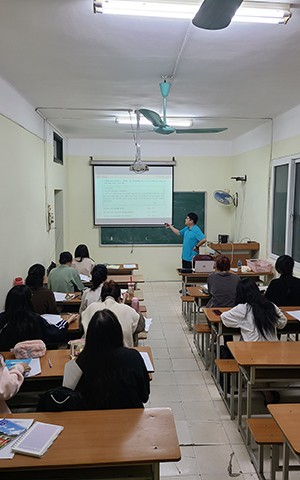 King Sejong Institute in Hanoi, Vietnam
King Sejong Institute in Hanoi, Vietnam
In the <2023 King Sejong Institute Learner Casebook> published by the King Sejong Institute Foundation last year, the cases of an interpreter and translator learned from the King Sejong Institute in Ulan-Ude, Russia, and a nanophysics researcher learned from the King Sejong Institute in Yangon, Myanmar, both run by Busan University of Foreign Studies, were included. Additionally, King Sejong Institute learners from Vietnam and Bahrain are completing a master's degree in Korean language education at Busan University of Foreign Studies. As an operating organization of King Sejong Institute, what do you think about the increasing number of foreign learners discovering their dreams and realizing themselves through learning Korean?
I believe that these cases of learners who find and achieve their dreams while learning Korean and experiencing Korean culture are representative products that show how meaningful the King Sejong Institute classes operated by Busan University of Foreign Studies are to local students in those countries. Success stories of learners active in various fields, such as the cases of an interpreter and translator from King Sejong Institute in Ulan-Ude, Russia, or a nanophysics researcher from King Sejong Institute in Yangon, Myanmar, show that our efforts in international education are paying off. Additionally, the fact that learners from King Sejong Institutes in Vietnam and Bahrain are completing a master's degree in Korean language education at Busan University of Foreign Studies shows that the educational programs of Busan University of Foreign Studies are internationally recognized. Like these success stories, I will continue to work hard to ensure that Busan University of Foreign Studies can serve as an important guide for our country to more actively cooperate and communicate with the international community.
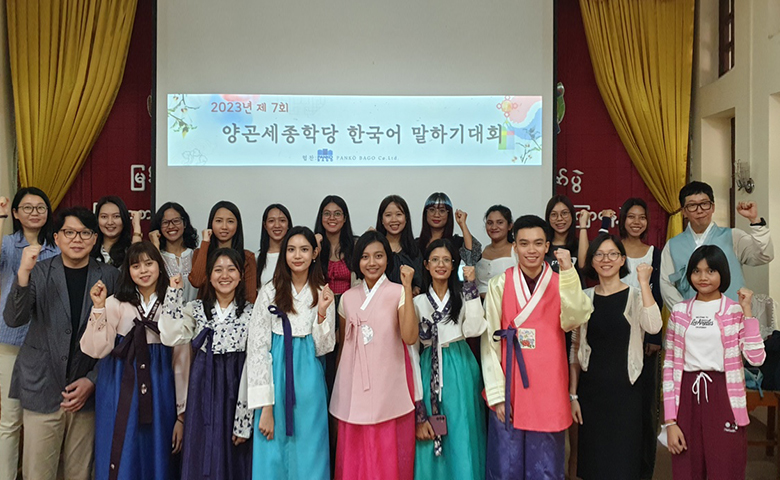 King Sejong Institute in Yangon, Myanmar
King Sejong Institute in Yangon, Myanmar
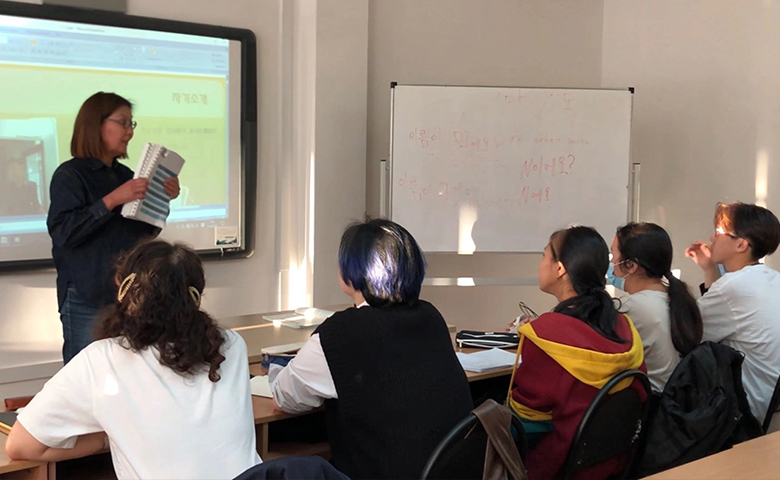 King Sejong Institute in Ulan-Ude, Russia
King Sejong Institute in Ulan-Ude, Russia
King Sejong Institutes must fulfill the role of ‘spreading Korean culture’ as well as ‘Korean language education’. To achieve this, exchanges with the region where King Sejong Institute is located seem to be important. I am curious about the current status and cases of regional exchanges and collaboration at the five King Sejong Institute learning centers operated by Busan University of Foreign Studies.
Busan University of Foreign Studies is making various efforts to spread not only the Korean language but also Korean culture through King Sejong Institute. King Sejong Institutes in each country are strengthening connections with the local community through exchange and collaboration with the region. King Sejong Institute in Hanoi, Vietnam is conducting various Korean cultural activities such as introduction and demonstration of Korean beauty and makeup methods, K-pop hairstyles, handwriting, and samulnori through the King Sejong Culture Academy. In addition, this learning center is also participating in the 2023 Korea Doldam Road Cultural Festival to promote Korean culture. In addition, King Sejong Institute in Hai Phong, Vietnam is conducting Korea's representative martial art Taekwondo as a regular subject in order to promote Taekwondo overseas.
King Sejong Institute in Yangon, Myanmar, is contributing to the spread of Korean language and culture in Myanmar by conducting the Korean Language Proficiency Test in collaboration with the Embassy of the Republic of Korea in the Federal Republic of Myanmar. The King Sejong Institute in Ulan-Ude, Russia is holding various events to spread the Korean language and culture through cooperation with the Buryat National Library and the Ulan-Ude Civil Library. In this way, King Sejong Institutes operated by Busan University of Foreign Studies are contributing to the local and international communities by strengthening the connection between King Sejong Institutes and the local community through local exchange and collaboration.
Lastly, the King Sejong Institute in Brasilia, Brazil, which has been in charge of pilot operation since January of this year, plans to operate various Korean language classes and Korean culture programs for one year.
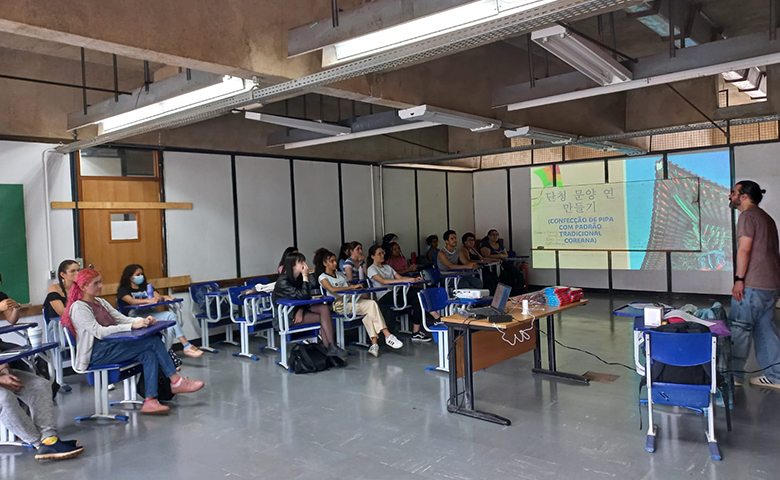 King Sejong Institute in Brasilia, Brazil
King Sejong Institute in Brasilia, Brazil
You have an educational philosophy of nurturing convergent talents who ‘feel problems on their own, study on their own, and solve problems together.’ Can King Sejong Institute learners also become ‘integrated talents’ at King Sejong Institutes? If so, I would appreciate it if you could tell our readers how to do it.
Yes. King Sejong Institute learners can also become convergent talents based on ‘PSC (Problems finding and solving, Self learning, Collaboration) education,’ which refers to problem finding and solving, self-directed learning, and collaboration. Convergence talent refers to talent who can combine knowledge and technology from multiple fields to find good problems and solve problems through self-study and cooperation.
In order to grow into such convergent talent at King Sejong Institute, it is important to first develop understanding and interest in various academic fields. King Sejong Institute provides not only Korean language education but also lectures and programs in various fields such as Korean culture, history, literature, politics, and economy. This allows learners to gain diverse knowledge and perspectives. Second, it is important to develop the ability to find good problems and study on your own. King Sejong Institute provides opportunities to think about and discuss solutions to various problems that occur in real life. Through this, learners should develop their own study skills by using various artificial intelligence such as ChatGPT to learn how to solve problems. Third, it is important to strengthen collaboration and communication skills. King Sejong Institute improves learners’ collaboration and communication skills through various collaborative activities such as team projects, discussions, and presentations.
There are many issues in this society that can be solved only when everyone cooperates, not alone. If learners acquire Korean language skills based on PSC education at King Sejong Institute, they will grow into convergent talents after graduation and lead the world with the ability to find and study problems on their own and solve problems together.
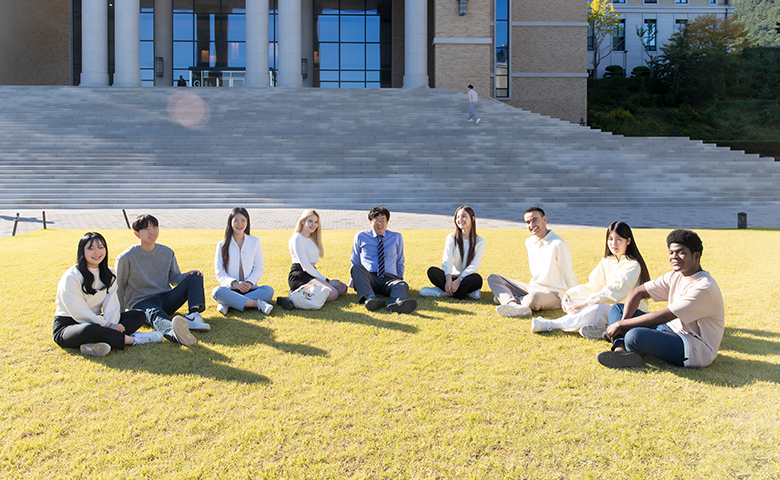
Lastly, if there is anything you would like to say to King Sejong Institute officials or learners around the world, please do so.
Busan University of Foreign Studies sincerely welcomes and always supports King Sejong Institute learners from around the world. Your passion and efforts are contributing greatly to further revitalizing Korean language education and cultural exchange and making the world more peaceful and diverse. Lastly, I would like to give you some advice that you can become better at Korean if you have a broad interest in Korea, including its culture, science, technology, and economy, in addition to Korean language. If you become interested in Korea as a country, you will inevitably become motivated and become good at Korean language. Of course, the journey of learning Korean language may sometimes have difficulties and challenges, but you can gain new experiences and growth in the process. If you work together with respect and understanding of each other's culture and language, you will be able to achieve greater achievements.
Busan University of Foreign Studies will take the lead in improving the quality of Korean language education and revitalizing international exchanges together with King Sejong Institutes around the world. I believe that if we all work together, we can create a better world. It is an honor to be with you on this journey to pioneer the future. Thank you so much.